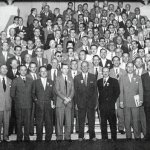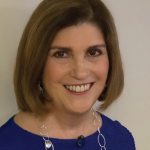“Certification as a Center of Excellence indicates that it has high clinical research standards, supports physicians in clinical and research best practices, and shares perspectives on clinical trial management,” said Dr. Yamamoto.
PANLAR: Embracing Technology
Across North, South and Central America, “we don’t have enough rheumatologists. So we have to think in other ways to attend all of the people with rheumatic diseases,” said Carlo V. Caballero-Uribe, MD, PhD, president of the Pan-American League of Associations for Rheumatology (PANLAR), which has 21 member societies.
In Latin American medical schools, “traditional lectures are the top method of choice to teach rheumatology to trainees,” said Dr. Caballero-Uribe. Challenges include a shortage of independent medical education programs, language and financial barriers. “Also, we are dealing with a new generation of young residents [who] talk a different language.” Young doctors want to use technology to learn, he said.
In 2015, PANLAR surveyed its members and found that “more students use search engines than university medical databases to look for rheumatology information. Also, mobile devices are used more than laptops to look for information in rheumatology and other medical areas,” he said.
PANLAR uses social media hashtags to expand access to free rheumatology training videos and materials to students in underserved areas. Trainees search for hashtags, such as #RheumEd, #RotReuma and #FOAMed, which stands for free open access medicine.
#PANLAREdu alerts users to a series of 12 monthly, on-demand rheumatology training webcasts. “It’s a free program that’s designed to close the gaps in rheumatology knowledge across the continents,” he said. Another free online rheumatology training program in Spanish, Reumati.co, offers interactive, case-based instruction on such topics as ultrasound and capillaroscopy. PANLAR also offers a social media primer on its website.
“We need to present social media as a teaching opportunity, keep our minds open and always ask for students’ feedback,” he said. “We need to think about the future of our specialty and make it more attractive to the next generation. Only by embracing innovation can we move forward and contribute to a truly global rheumatology.”
AFLAR: Awareness & Access
Rheumatology training disparities are only one challenge in the 20 nations in the African League of Associations for Rheumatology (AFLAR), said Olufemi Adelowo, FRCP, MACR, its president.
“Africa is underserved in the number of rheumatologists. South of the Sahara Desert, in totality, has perhaps less than 50 rheumatologists,” he said. Many African countries have both a shortage of medical institutions and poor facilities for training doctors. “Another challenge is the lack of awareness about rheumatic conditions in general. In many countries in Africa, people assume that arthritis is just one disease.”


